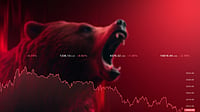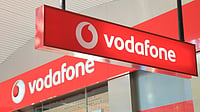Stocks in South Korea rallied on Monday after the financial regulator re-imposed a full ban on short-selling for eight months. The move was required to stop the illegal use of a tragic tactic used on a regular basis by hedge funds and other investors around the world, according to the authorities.
The ban imposed by the Financial Services Commission (FSC) applies to all listed stocks in South Korea and will be in place until June 2024. On Sunday, FSC said that new short-selling positions will be prohibited for equities on the Kospi 200 Index and Kosdaq 150 Index from Monday through the end of June.
Ban imposed on short-selling during COVID-19 pandemic had been lifted for those two indexes only in May 2021, while around 2,000 stocks have remained under the restrictions.
Short selling refers to selling borrowed shares to buy back at a lower price and pocket the difference.
Why South Korean Regulator Re-Imposed A Ban On Short Selling?
FSC chair Kim Joo-hyun said that despite previous regulatory improvements, concerns remain high over fair price formation in the domestic stock market due to repeated illegal naked short selling by global institutional investors. He added that the FSC would utilize the ban period to improve regulations on short-selling.
Additionally, the government would launch a probe into “naked” short selling by global investment banks.
“We will apply a zero-tolerance approach to illegal naked short-selling practices. Perpetrators will be strictly punished and face criminal prosecution,” Kim said.
Naked short-selling involves investors short-selling shares without first borrowing them or determining they can be borrowed.
Joo-hyun says that the measure is aimed at fundamentally easing ‘the titled playing field’ between institutional investors. “Amid continued uncertainty in financial markets, major foreign investment banks have been engaged as a matter of practice in unfair trades … and we determined that it would be impossible to maintain fair trading discipline,” he said.
According to a report by Bloomberg, the ban comes ahead of general elections in April for the National Assembly in South Korea, where public perception of short-selling is highly negative. Ruling party lawmakers had urged the government to temporarily ban stock short-selling after a protest by retail investors. The majority of short-selling in South Korea is conducted by institutional investors.
In October this year, the financial supervisory service said it would fine two investment banks based in Hong Kong it determined had engaged in naked short-selling transactions worth 40 billion won ($29.58 million) and 16 billion won respectively.
Previously, the regulator had imposed a fine on five foreign firms including Credit Suisse for naked short-selling.
The financial regulator also cited global economic uncertainty due to the Israel-Hamas conflict and economic weakness in South Korea as the motivators behind the short-selling.
Impact On The Stock Market
South Korea’s benchmark KOSPI index surged over 4.4 per cent to a near one-month high and was moving towards its best day in four years. The small-cap Kosdaq Index jumped as high as 5.9 per cent, the most since June 2020.
According to reports, the ban could help appeal to retail investors. However, it could avert some foreign investors and hold back from MSCI Inc. from boosting Korean stocks to developed markets from emerging status.




























